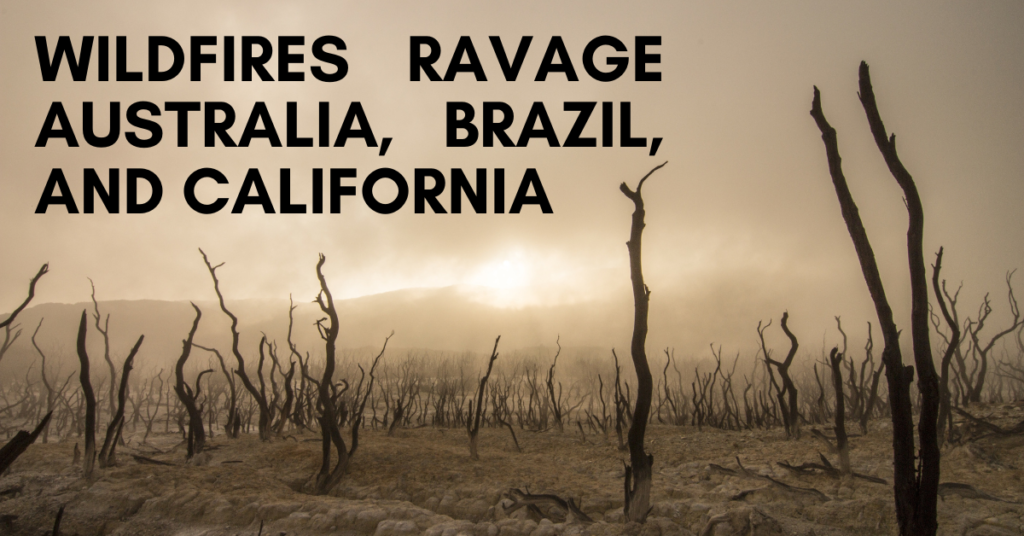[ad_1]
Wildfires have been devastating regions across the globe, with Australia, Brazil, and California among the hardest hit in recent years. These wildfires have destroyed homes and wildlife and have had long-lasting effects on the environment and communities in these areas.
In Australia, the 2019-2020 wildfire season, also known as Black Summer, saw unprecedented levels of destruction. Over 18 million acres of land were burned, with an estimated one billion animals killed and at least 33 people losing their lives. The fires were fueled by record-breaking temperatures and drought conditions, exacerbated by climate change. The fires also produced a significant amount of smoke, affecting residents’ air quality and health in major cities such as Sydney and Melbourne.
Similarly, Brazil has faced devastating wildfires recently, particularly in the Amazon rainforest. The Amazon, often called the “lungs of the Earth,” plays a crucial role in regulating the global climate and is home to millions of species of plants and animals. The fires in the Amazon have been largely attributed to deforestation and deliberate land burning for agriculture and land development. The fires destroy countless species’ habitats and release large amounts of carbon dioxide into the atmosphere, contributing to global warming.
In California, wildfires have become a regular occurrence, with the state experiencing some of the worst wildfires in its history in recent years. In 2020 alone, over four million acres of land burned, and over 10,000 structures were destroyed. The fires have been fueled by high temperatures, strong winds, and dry vegetation, creating ideal conditions for wildfires to spread quickly and uncontrollably. The fires have also led to widespread power outages, air quality issues, and forced evacuations of thousands of residents.
The impacts of these wildfires are far-reaching and long-lasting. In addition to the immediate loss of life and property, these fires have resulted in significant economic losses, environmental degradation, and health issues for humans and wildlife. The increasing frequency and intensity of wildfires are also a stark reminder of the urgent need to address climate change and its effects on our planet.
Efforts are being made to mitigate the risk of wildfires and their impacts, including implementing stricter land use and forest management regulations, investing in early warning systems and firefighting resources, and raising awareness about the importance of conservation and sustainability. However, more needs to be done to address these wildfires’ root causes and protect our planet for future generations.
As we continue to witness the devastating effects of wildfires in Australia, Brazil, California, and other regions, it is clear that urgent action is needed to address the underlying issues that are fueling these disasters. We must work together to combat climate change, protect our natural resources, and build more resilient communities to withstand the growing threat of wildfires. Only then can we hope to prevent further destruction and preserve the beauty and biodiversity of our planet for generations to come?
[ad_2]

